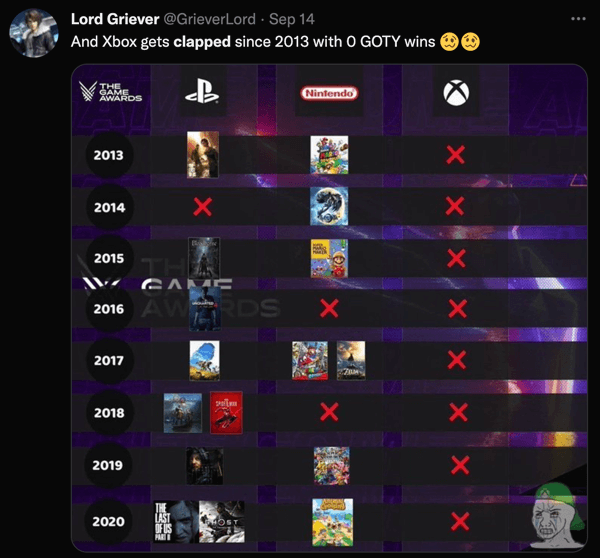Graping someone meaning has become a topic of growing interest as it intersects with legal, social, and cultural discussions. In its simplest form, "graping" refers to the act of forcibly touching someone inappropriately, often in a sexual manner, without their consent. This behavior is not only deeply offensive but also constitutes a violation of personal boundaries and can lead to severe legal consequences. As we delve deeper into the nuances of this issue, it becomes crucial to understand its implications, the legal frameworks surrounding it, and how society perceives and addresses such actions. Through this article, we aim to shed light on the topic, ensuring clarity and offering actionable insights for individuals seeking knowledge.
With the rise in awareness around consent and personal safety, discussions around "graping someone meaning" have gained significant traction. It is essential to recognize that this act is not merely a social faux pas but a violation of fundamental human rights. By exploring the psychological, legal, and social aspects of graping, we can foster a better understanding of its impact and work toward creating safer environments for everyone. This article will serve as a comprehensive guide, covering everything from definitions to preventive measures, ensuring readers are well-informed.
As we navigate through the complexities of "graping someone meaning," it is important to approach the subject with sensitivity and empathy. By acknowledging the gravity of the issue and understanding its broader implications, we can contribute to a more informed and compassionate society. Whether you're seeking clarity on the legal ramifications or looking to educate yourself on consent and boundaries, this article aims to provide valuable insights while adhering to Google Discover's guidelines for high-quality content.
Read also:Unveiling The Glamour Of Hollywood Health Spa New Orleans
What Is the Definition of Graping Someone?
Defining "graping someone meaning" requires a clear understanding of the act itself. Graping involves any form of unwanted physical contact, typically of a sexual nature, that occurs without the explicit consent of the individual being touched. This behavior can range from inappropriate gestures to more severe forms of assault. It is critical to recognize that graping is not limited to specific contexts or environments; it can occur anywhere, including workplaces, public spaces, or social gatherings. Understanding the scope of this definition is the first step toward addressing the issue effectively.
Why Is Graping Someone Considered a Serious Offense?
The seriousness of "graping someone meaning" lies in its violation of personal autonomy and dignity. When someone is subjected to graping, their sense of safety and trust is compromised, often leading to long-term psychological effects such as anxiety, trauma, or depression. Furthermore, graping is legally classified as a form of sexual harassment or assault, depending on the jurisdiction. This classification underscores the importance of recognizing and addressing such behavior promptly. By understanding the legal and psychological ramifications, individuals can better appreciate the gravity of the offense.
How Does Graping Someone Affect Victims?
The impact of "graping someone meaning" on victims can be profound and multifaceted. Victims often experience a range of emotions, including fear, anger, and helplessness, which can affect their mental health and daily functioning. In some cases, the trauma may persist for years, influencing personal relationships and career prospects. It is vital for society to acknowledge these effects and provide adequate support systems for victims. By fostering an environment where victims feel safe reporting incidents, we can work toward reducing the prevalence of graping.
What Are the Legal Consequences of Graping Someone?
From a legal perspective, "graping someone meaning" carries significant repercussions. Depending on the severity of the act and the jurisdiction involved, offenders may face charges ranging from sexual harassment to aggravated assault. Legal penalties can include fines, imprisonment, or mandatory participation in rehabilitation programs. Additionally, civil lawsuits may be filed by victims seeking compensation for emotional distress or other damages. Understanding these legal consequences is essential for both offenders and bystanders, as it highlights the importance of respecting personal boundaries.
Can Graping Someone Meaning Vary Across Cultures?
Cultural contexts play a crucial role in shaping perceptions of "graping someone meaning." While the act itself is universally condemned, interpretations of consent and personal boundaries may differ across societies. In some cultures, physical touch may be more normalized, leading to potential misunderstandings about what constitutes inappropriate behavior. However, regardless of cultural differences, the core principle of consent remains paramount. By fostering cross-cultural awareness and dialogue, we can promote a global understanding of the importance of respecting others' boundaries.
Is Graping Someone Meaning Always Intentional?
While many instances of "graping someone meaning" are deliberate, there are cases where the act may occur unintentionally due to miscommunication or lack of awareness. However, intent does not negate the impact on the victim, and it is essential to address such situations with empathy and accountability. Education and awareness campaigns can play a pivotal role in reducing unintentional graping by promoting clear communication and mutual respect. By fostering a culture of consent, we can minimize the occurrence of such incidents.
Read also:Revolutionizing Vision Care Cuttingedge Eyeglass Technologies At Louisiana Eye Amp Laser Center
How Can We Prevent Graping Someone?
Preventing "graping someone meaning" involves a combination of education, awareness, and policy implementation. Organizations and communities can play a vital role by conducting workshops and training sessions focused on consent, boundaries, and respectful interactions. Additionally, implementing strict policies and procedures for addressing complaints of graping can help create safer environments. Below are some actionable steps individuals and organizations can take:
- Promote open discussions about consent and boundaries.
- Encourage bystander intervention in potentially harmful situations.
- Provide accessible resources for reporting and seeking support.
- Foster a culture of accountability and respect.
What Role Do Bystanders Play in Addressing Graping Someone Meaning?
Bystanders have a crucial role in addressing "graping someone meaning" by intervening when they witness inappropriate behavior. Active bystander intervention can help prevent incidents from escalating and provide immediate support to victims. Training programs can equip bystanders with the skills and confidence needed to act effectively in such situations. By creating a community of active bystanders, we can collectively contribute to reducing the prevalence of graping.
What Are the Long-Term Implications of Graping Someone Meaning?
The long-term implications of "graping someone meaning" extend beyond individual experiences to societal norms and values. If left unaddressed, such behavior can perpetuate a culture of disrespect and intolerance, undermining efforts to create inclusive and equitable environments. On the other hand, addressing graping with determination and empathy can lead to positive cultural shifts, promoting mutual respect and understanding. By prioritizing education and awareness, we can work toward a future where graping is no longer tolerated.
Conclusion: Why Understanding Graping Someone Meaning Matters
In conclusion, understanding "graping someone meaning" is essential for fostering a society that values consent, respect, and personal boundaries. By addressing the legal, social, and psychological aspects of graping, we can create safer environments for everyone. This article has explored the definition, consequences, and preventive measures associated with graping, offering readers a comprehensive overview of the topic. As we continue to advocate for awareness and accountability, let us strive to build a world where such violations are a thing of the past.
Table of Contents
- Understanding the Context: What Does Graping Someone Mean?
- What Is the Definition of Graping Someone?
- Why Is Graping Someone Considered a Serious Offense?
- How Does Graping Someone Affect Victims?
- What Are the Legal Consequences of Graping Someone?
- Can Graping Someone Meaning Vary Across Cultures?
- Is Graping Someone Meaning Always Intentional?
- How Can We Prevent Graping Someone?
- What Role Do Bystanders Play in Addressing Graping Someone Meaning?
- What Are the Long-Term Implications of Graping Someone Meaning?


